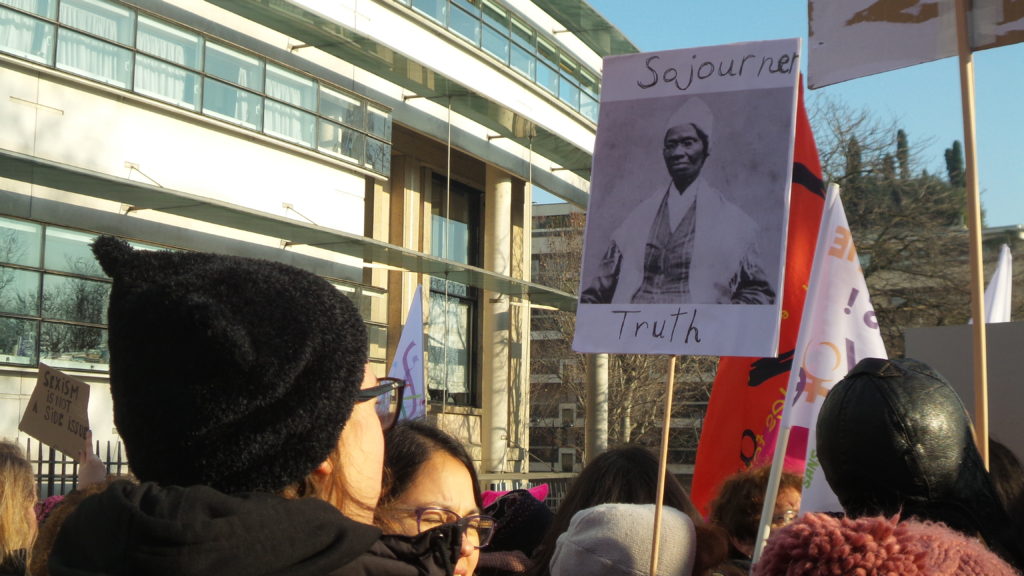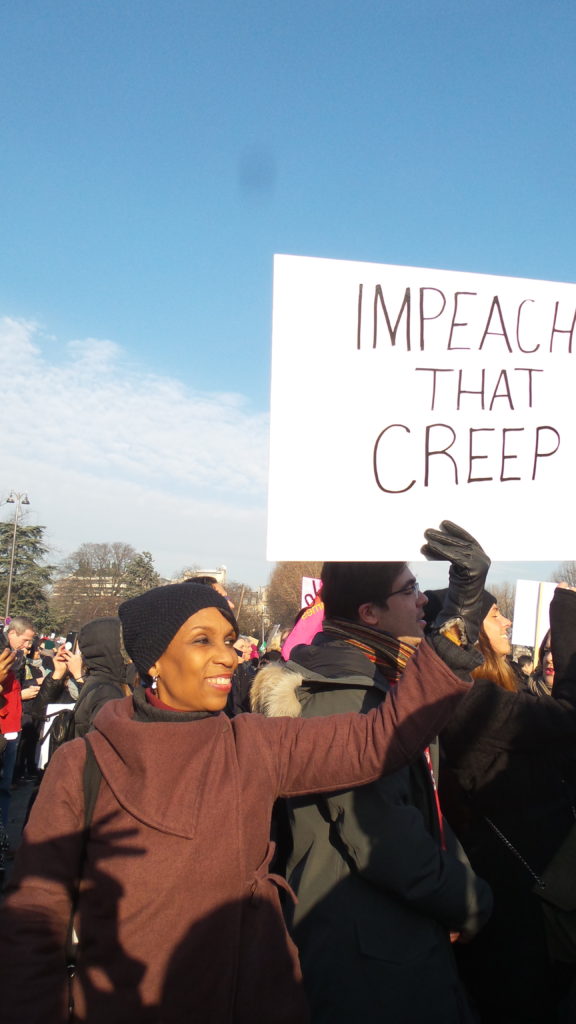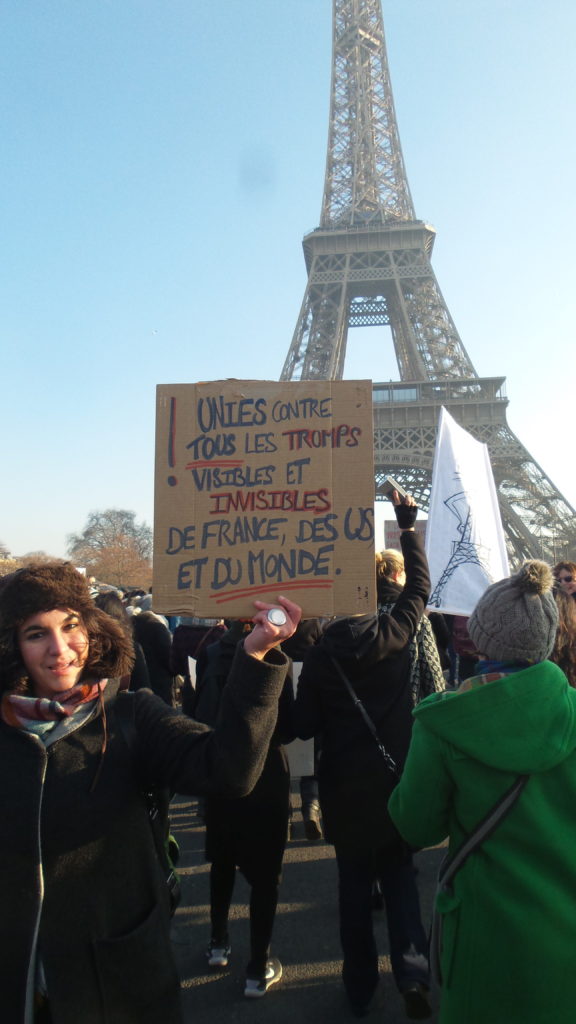
In this moment in which we see racism and State violence unleashed against some of us, the Muslim citizens of our world, let us return to an event that said NO to sexism and therefore racism. On January 21, the women’s march on Washington launched the day after the inauguration of the 45th President of the United States. The march brought together a multitude of demonstrators in Washington DC as well as in every other major city in the US. Additionally, sister marches in 100 other cities in the world were formed. According to the Women’s March organizers, about 5 million groups walked in unison that day.
In France, the march was preceded, on January 20th, by a “day of engagement with women” on France Culture, a public radio station, which called the event “the long march of women” and suggested that we are seeing a great leap behind. Each program addressed various sections of the struggle for women to be a full being, whether they had been revolutionary, colonized, proletarian, mothers, and the list went on.
While the march was not announced in many other media, the demonstration in Paris numbered in the tens of thousands. All the signs expressed the various feelings and worries about the struggles past and to come. For instance, one sign, held by an African American woman living in Paris, said “Impeach that creep” on one side and “vote out Le Pen” on the other.

Another sign, in French said, “Together against all the Trumps, visible or invisible, of France, the United States and of the world”.

The United States’ example reminded many that every right gained after long fights can always be threatened and dismantled by the patriarchal order like the right to sexual and reproductive health, including the right to have access to free abortion and contraception. For this reason, the French Movement for Family Planning was widely represented, knowing that although this right is part of the French constitution and actively enforced, the extreme right looms over it ready to use deceitful strategies to dismantle it.
We met with three young Americans, English teachers in Marseille, who came to Paris to demonstrate. They were from New York City; Richmond, Virginia; and Birmingham, Alabama. They talked about racism, inequality, and intersectionality. They sang, “We shall overcome.” We also met with Genevieve Fraisse, a renowned French philosopher and historian specializing in feminist thoughts. She reminded us of the importance of organizing and that she had been an active demonstrator before being a philosopher. She talked about disqualification rather than discrimination. Today with the official realization that refugees and immigrants from seven Muslim countries are banned, the notion of disqualification of some as not having the same quality as human beings as others resonates.
Here’s our interview with Genevieve Fraisse:
(Photos and interview by Brigitte Marti)